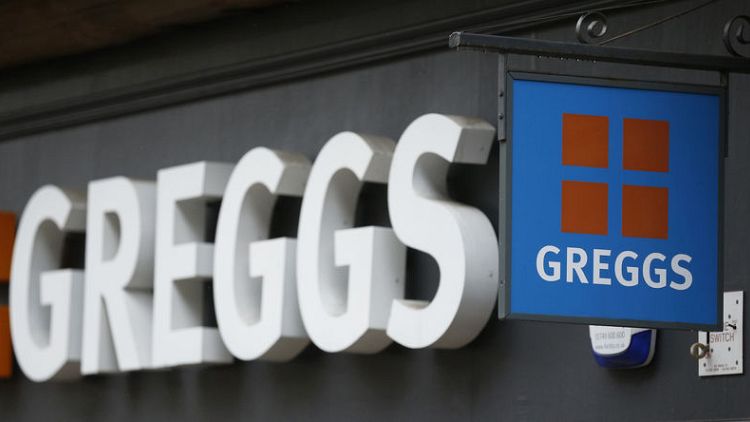LONDON (Reuters) - British baker and takeaway food group Greggs reported another rise in sales in its latest quarter as more customers visited its shops, though the rate of growth slowed, reflecting tough comparative numbers with the same period last year.
Shares in Greggs <GRG.L> have doubled over the last year but were down 4.3% at 0741 GMT on Tuesday.
The group, which trades from over 2,000 outlets, also said it was preparing for the potential impact of Britain's departure from the European Union by building stocks of key ingredients and equipment that could be affected by disruption to the flow of goods into the UK.
Greggs said like-for-like sales at company-managed shops increased 7.4% in the 13 weeks to Sept. 28, its fiscal third quarter.
Though still a strong performance, it represented a slowdown from first-half growth of 10.5%, which was partly fuelled by the success of its vegan sausage roll, launched earlier in the year.
Greggs cautioned in July it expected the rate of sales growth to begin to normalise in the second half as it was up against strong trading in the corresponding period last year.
The firm noted pressures on both labour and food input costs but said overall input cost inflation was in line with its previous guidance. Its overall expectations for the full year were unchanged.
Greggs said it was progressing trials to open shops later into the evening, supported by an extended range of "post-4pm" deals, such as a two pound pizza plus drink offer and a new hot menu meal deal for four pounds.
It said it was also encouraged by customer demand for its delivery service trials.
Prior to Tuesday's update, analysts' average forecast for full-year underlying pretax profit was 110 million pounds, according to Refinitiv data, up from 89.8 million pounds in 2018.
(Reporting by James Davey, editing by Paul Sandle and David Evans)



